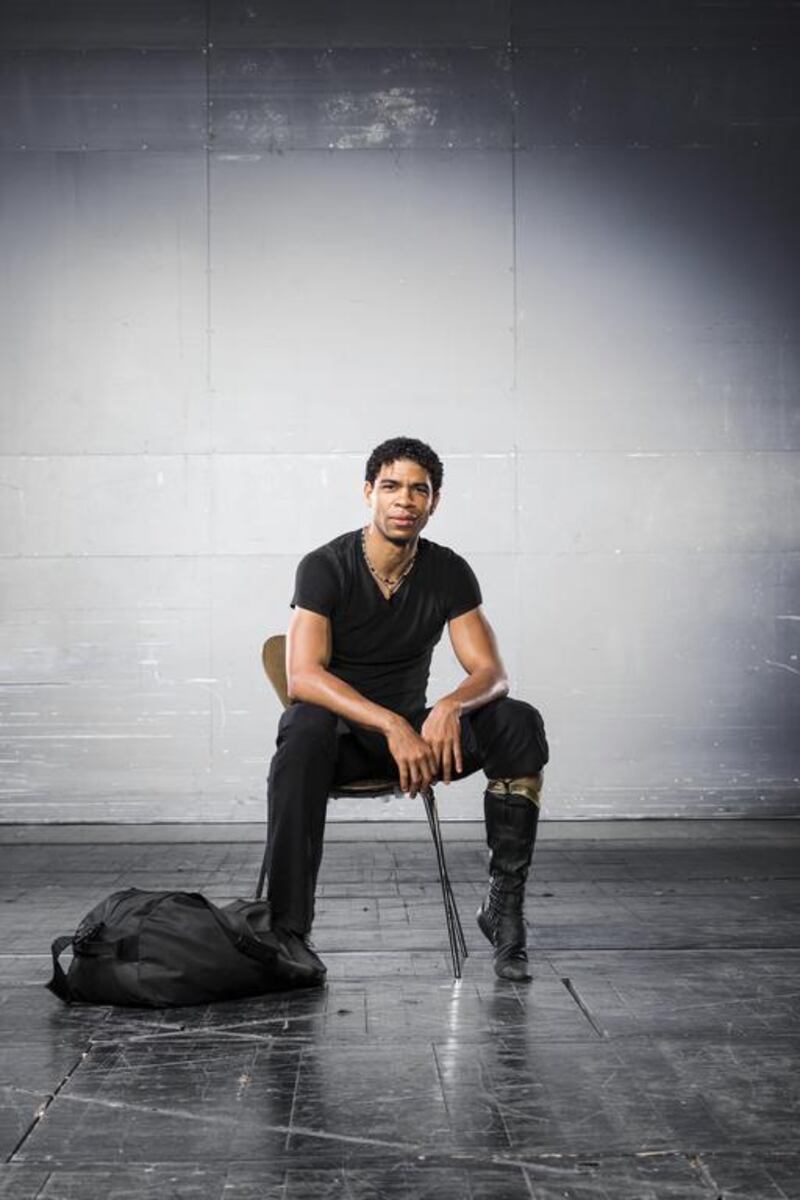It was time to step away. For 42-year-old Cuban ballet star Carlos Acosta, the realisation came when faced with an agonising choice that veteran performers often have to make: continue performing and gradually decrease the quality, or quit while on top. Acosta chose the latter.
“Nothing is forever,” he says before two performances at Emirates Palace, as part of the Abu Dhabi Festival, which form part of his final world tour.
“I didn’t want to decline – I wanted to stop while I was still on top. I’m 42 and I’ve done everything with most ballet companies around the world, so this is the time.”
Often compared with greats such as Mikhail Baryshnikov and Rudolf Nureyev, Acosta grew up in a poverty-stricken background to become a luminary, performing with the UK’s The Royal Ballet and Russia’s Bolshoi Ballet.
His Abu Dhabi show is almost a greatest hits package – joined by his mentees from Cuba, the programme features a repertoire of favourites and modern pieces.
Dance pieces include Swan Lake, Diana and Actaeon Pas de Deux, A Buenos Aires and Nisi Dominus.
“I’ve heard that the ballet culture in the Emirates is still new and so I’m very excited to bring this programme that will appeal to everyone,” he says.
“It will be some of the greatest classical hits and will be great for families and also for people who don’t know much about ballet.”
If Acosta was not so recognisable as a ballet star, his enduring athletic, muscular physique could mislead anyone into assuming he was a professional sports player.
In fact, if it hadn’t been for an adamant father, he would have most likely have ended up kicking a ball on the streets or getting on the wrong side of the law.
“ I didn’t like school very much so my father put me into ballet school against my will, because he was afraid I would end up being a delinquent as I was always in the streets breakdancing,” says the dancer, his Cuban drawl unaffected by three decades travelling the world.
“I wanted to play football and I was like this reckless child. But when I saw the professionals of the National Ballet School of Cuba perform for the first time, it changed my life forever.”
It was the athelic discipline involved in the dance form that attracted Acosta. “In the beginning I thought it was boring with slow moving men dancing to piano music. Then I saw their muscles and the way they were built and how they jumped very high and carry [carried] the ballerina with one hand. I was like ‘wow’, they are just like sports people.”
Growing up in a deprived household meant mediocrity wasn’t an option. Achievement meant a ticket for Acosta and his family out of the slums.
“Poverty made me appreciate what I have and gave me the hunger to strive for more,” says Acosta, who became the family’s key provider when his father was jailed for a serious traffic accident.
“Nobody was going to do it for me. I think that is an attitude that I incorporate in my life. Even when I became a professional, I knew that I had to turn myself into a prince – for myself and to give my family a better life.”
His perseverance paid off and he was headhunted by some of the biggest ballet houses in the United States and Europe to be their leading dancer. Among several career validations, including becoming the first foreigner to be the guest-principal with the Bolshoi, a notable achievement was Acosta as the first black principal dancer to play Romeo with the Royal Ballet.
"If you had asked me years ago if I was going to end up on the most recent DVD of Royal Ballet's Romeo and Juliet, I wouldn't have believed it," he says. "I always knew that at some point I was going to do Don Quixote and these kind of roles more suited to me, but I managed to turn myself into Romeo. And seeing myself on that DVD makes me very proud."
Acosta admits there were times he felt like an outcast in the ballet world. “I was the Royal Ballet’s first black principal,” he explains. “I knew it was going to be quite challenging for the director to see me as a prince, so it was important that I proved myself through dance.
The present diversity debate is not only limited to the film world. Acosta says it remains prevalent in the ballet industry.
“The landscape, especially in places like the Royal Ballet, is changing with the involvement of people from different backgrounds,” says Acosta.
He says a complete overhaul is required, with a special emphasis placed on education.
“A lot of parents don’t know much about ballet, and consider it as an expensive art form, which is true.”
Hence the importance of Acosta’s soon-to-be-built dance academy in Cuba. By providing disadvantaged children from all over the world with the opportunity to study ballet for free, it could be prove to be Acosta’s crowning achievement.
“The company will also be a platform for me to choreograph and do a bit of dancing,” he says. “It’s almost like a legacy that I want to leave behind.”
• Carlos Acosta and Friends will perform at the Emirates Palace Auditorium as part of Abu Dhabi Festival on April 25 and 26 at 8pm. Tickets from Dh125, at www.timeouttickets.com. For more information, visit www.abudhabifestival.ae
aahmed@thenational.ae





